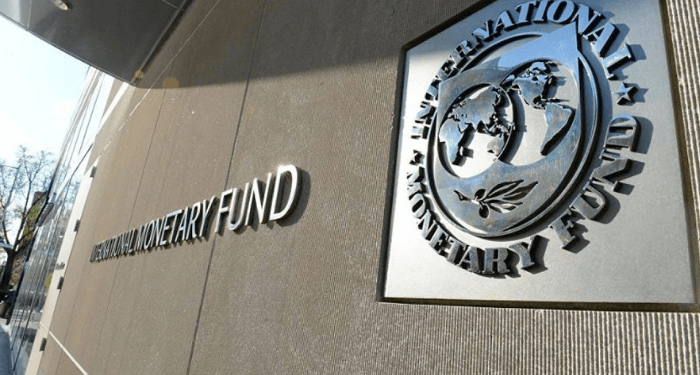Nigeria’s 51% Debt-to-GDP Ratio Seen Falling in 2025
Nigeria’s 51 percent debt burden, also known as net debt percentage of Gross Domestic Product (GDP), will decline in 2025, according to the International Monetary Fund (IMF).
Nigeria’s debt burden rose to 50.7 percent in October 2024 from 46.1 percent in the corresponding period of 2023, according to the IMF.
The data obtained from the Fiscal Monitor Report released on Wednesday by the IMF, however, says the number will drop marginally to 49.6 percent in 2025.
The increase in Nigeria’s net debt percentage of GDP from 46.1 in 2023 to 50.7 in 2024 indicates that the country’s government is borrowing more relative to its economic output.
“Ghana is in the process of restructuring its debt. Government debt projections are based on a pre-debt restructuring scenario. Debt includes overdrafts from the Central Bank of Nigeria and liabilities of the Asset Management Corporation of Nigeria (AMCON). The overdrafts and government deposits at the CBN almost cancel each other out, and the AMCON debt is roughly halved,” the IMF report says.
A higher debt-to-GDP ratio can put pressure on a country’s finances. It means that a larger portion of the government’s revenue is used to service its debt, leaving less for other expenditures like education, healthcare, and infrastructure.
If a country’s debt becomes unsustainable, it can lead to economic instability. Investors may become less willing to lend to the government, and the country may face difficulties in meeting its debt obligations.
According to the report, the general government expenditure percentage of GDP rose to 18.1 percent this year compared to 13.6 in 2023.
Nigeria’s revenue percentage of GDP increased to 13.5 percent in 2024 from 9.4 percent last year and is projected to drop marginally to 13.2 percent next year.
The report notes that the general government’s primary balance percentage of GDP remains unchanged at 0.9 percent and is expected to fall to 0.3 percent in 2025. The overall balance of the country’s percentage of GDP stands at 4.6 percent in October 2024 from 4.2 percent in 2023 and is expected to drop to 4.2 percent in 2025.
At the ongoing IMF/World Bank annual meetings, top officials from the IMF highlighted the growing risks associated with global public debt and urged countries to take immediate fiscal actions to curb potential economic damage.
Speaking at a press briefing on the IMF’s Fiscal Monitor report, Vitor Gaspar, director of the Fiscal Affairs Department, along with colleagues, Era Dabla-Norris and Davide Furceri from the same department, underscored the urgency of tackling fiscal vulnerabilities as global debt continues to climb.
Gaspar warned, “Deficits are high, and global public debt is projected to rise to about $100 trillion this year.”
He noted that at the current rate, the global debt-to-GDP ratio could reach 100 percent by the end of the decade, surpassing even the levels seen during the pandemic.
Despite this alarming outlook, he noted the differences across countries, saying, “In about one-third of the countries, public debt is higher and projected to grow faster than pre-pandemic levels. This includes major economies such as China, the United States, Brazil, and the United Kingdom, representing around 70 percent of global GDP.”
The IMF’s Fiscal Monitor presents a framework called ‘debt at risk,’ which illustrates potential debt risks over the next three years.
According to Gaspar, the analysis shows that “risks to public debt projections are tilted to the upside,” meaning that debt could rise faster than expected under adverse scenarios. He stressed that current fiscal plans by governments are insufficient to stabilise or reduce debt ratios, calling for immediate action. “Kicking the can down the road won’t do. The time to act is now.”
However, Gaspar acknowledged that while the global debt picture looks risky, most economies are in a position to implement fiscal adjustments.
“The likelihood of a soft landing has increased,” he said, citing low unemployment and easing monetary policies in major economies. He advised countries to avoid cutting public investment, which could harm long-term growth, and instead focus on governance, transparency, and ensuring fiscal reforms are people-centered.
Responding to a question about Nigeria’s fiscal situation, Furceri noted that Nigeria faces significant challenges, particularly in terms of revenue mobilisation.
“Nigeria has a very low revenue-to-GDP ratio, around 10 percent,” he said, noting that the country’s debt servicing obligations are consuming a large portion of its revenue, similar to other low-income countries where this ratio averages around 15 percent.
“This means a large share of revenue growth is used just to finance the debt,” Furceri explained, emphasising the need for Nigeria to broaden its tax base and increase revenue mobilisation.
Furceri also pointed to the impact of rising food prices and droughts on Nigeria’s economy, calling for transparent mechanisms to ensure that government resources reach the most vulnerable populations.
He stressed the importance of balancing revenue growth with targeted social safety nets, especially in countries like Nigeria that are facing both fiscal and humanitarian challenges.
Gaspar reiterated the IMF’s key message: “Public debt is very high, rising, and risky. The time is now to pivot towards a gradual, sustained, and people-focused fiscal adjustment.”








